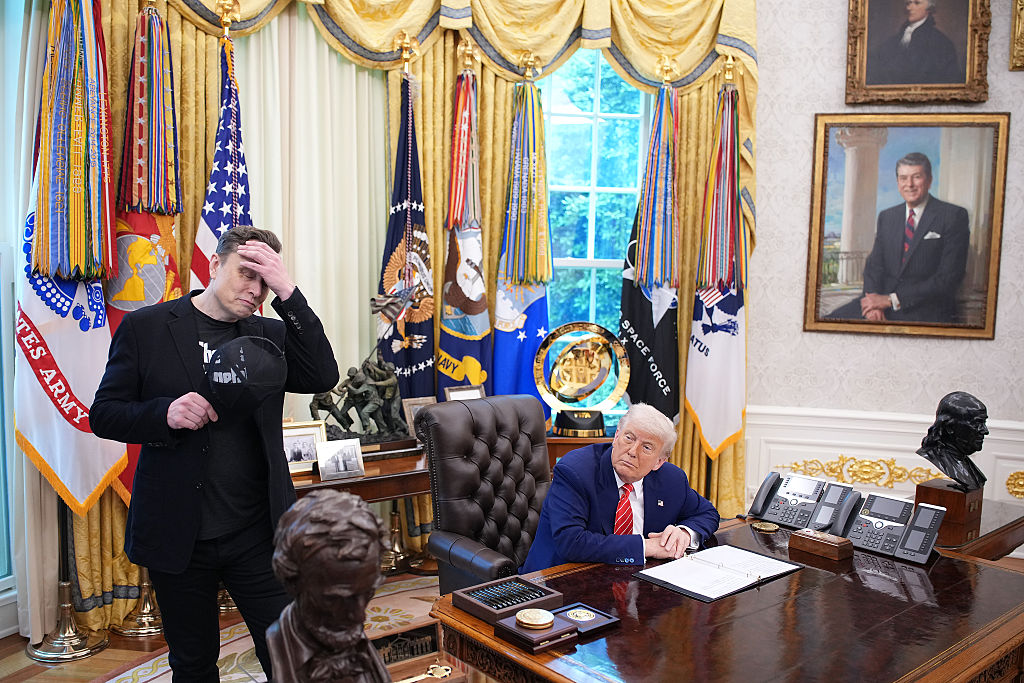The rise of reverse gaslighting
Sir — To an otherwise excellent article, I have a small correction. In 1860, the Southern states did not keep Lincoln off the ballot. Unlike today, where voting ballots are printed by the states, in 1860, voters were not presented with official ballots at polling stations that allowed them to check off which candidate they were voting for. Instead, a nineteenth-century ballot or “political ticket” was a slip of paper, provided by each party, listing their candidates for whatever offices were up for election. This allowed voters to easily “vote the ticket” for their party without having to know the names of every candidate and office.
Since in 1860 the Republican Party had no real presence in most Southern states — especially the Deep South — no political tickets were being distributed. So that’s actually what was happening, rather than Lincoln’s being “left off” or “removed from” an official ballot like we have today. Of course, that didn’t mean people couldn’t vote for Lincoln, but they would have had to write him in like we would a third-party candidate today.
— George Andrews
Scientists’ strange offering to the final frontier
Sir — “It is a novel concept, this idea that the technological sophistication needed for interstellar travel would be synonymous with a strong moral compass.”
Shucks. There are “societies” of actual human beings about which this cannot seriously be said. And these people will stake our existence upon the assumption that a human-defined moral compass will define an entity with (literally) no earthly connection whatsoever? What’s about twenty steps out beyond hubris?
— Casey Jones
The fight to curtail TikTok’s influence
Sir — TikTok is brilliant but addictive. My own child told me the other day she has totally quit using YouTube because “everything’s on TikTok.” She watches cooking shows and nail polish how-to’s, along with funny chicken videos, etc.
I’m quite familiar with the various objections to TikTok: it’s a nefarious mind virus platform that is indoctrinating our youth, a China-controlled propaganda outlet, a dangerously addictive medium that is damaging young minds.
All of which is probably true, but it’s also an amazing means of delivering information in short bursts very quickly and efficiently. We should be looking at how to make similar products not controlled by China. It’s surprising there’s so little competition. The other main players out there are YouTube Shorts and Instagram, both of which are controlled by large nasty censorious woke companies. Perhaps it’s time for a Truth Social version of TikTok, or a Twitter/X version of video shorts. Knowing Elon Musk, his team is already working on that.
— Joe Tairei
Inside the real Israel
Sir — Thank you, Josh Kaplan, your article humanizes a country and its people that have been turned into “the Jew” of the planet. I disagree with your reading of how Prime Minister Netanyahu is being viewed. The vicious campaigns against him and his family are beginning to backfire. His calm competence while being under inhumane pressure on virtually all fronts brings him new admirers. The wise and diplomatic way he copes with a semi-hostile American administration that is boldly interfering with Israeli democracy and this terrible war, is winning Bibi many new admirers. His refusal to endanger Israel through a two-state “solution” shows a steadfast stance the American favorite [Benny] Gantz lacks.
— Susan L
The ups and downs of the long road toward workplace parity
Sir — This article is specious. When women work the same hours in the same jobs as men, the so-called playing field will be even. When you see how boys’ education can be different from girls’, and how men’s opinions are now not as valued as women’s, you can understand why there are fewer of them in college. And look at the majors some women choose — Women’s and Gender Studies. Hardly a subject guaranteed to get them a job in something useful. Men still do the heavy lifting and so-called blue-collar jobs as electricians, plumbers, firemen, most police. Those are considerably more important than the PhDs.
— Patricia Yeiser
Must we ‘be safe?’
Another delightful piece from Mr. Moore — thank you! I was just ruminating about this phenomenon yesterday when, at the end of a call with a Petsmart tech support worker about an online order, he said, “Thanks for calling Petsmart. Tell your pets I said ‘Hi,’ and be safe.” Was the “be safe” for my pets? Me? (I understand that “Say hi to your pets” is no doubt a directive from someone in Marketing who thinks it sounds cute, but… I feel like an entire other column could be written about that.)
— Danielle McKane
The story of Vince Maney
Sir — I, too, really love baseball — baseball like it used to be. No noise except the chatter on the field, cheering in the stands, the beer, peanut and hot dog vendors and the Lowrey organ. Anyone could afford to go and take the kids. You could watch the game and have nice conversations without blasting rock music. You could afford hot dogs and a soda pop and have a wonderful day watching baseball played on a lush grass field outdoors. I gave up watching pro baseball several years ago. I do miss it.
— Margaret Crump
Send your letters to: letters@thespectator.com. This article was originally published in The Spectator’s June 2024 World edition.


























Leave a Reply